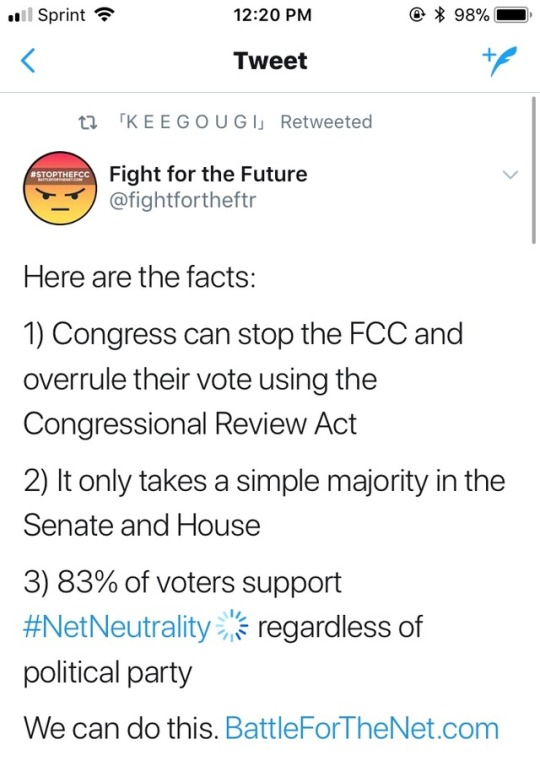Text
Reblog or your mom will die in 928 seconds.
I love my mom.

I am risking nothing

I AM SORRY FOLLOWERS, I LOVE MY MOMMY
Will not risk.

sorry followers :(
5M notes
·
View notes
Text
reblog for good things to happen to you
the universe will listen
561K notes
·
View notes
Text
Little things that help moods:
- getting enough sunshine
- opening the curtains
- eating regular meals
- short walks with your favourite music
- don’t stay up until 3am
- don’t try to relate to negative tumblr text posts
- get off tumblr/social media if it’s unhealthy
- shower
- don’t stay in bed the whole day
- plan out your day
- listen to music
- change your clothes
- set yourself small goals
- say yes to fun events
- drink water, it takes 5 seconds
- talk to a close friend
- remind yourself: a bad mood can lie to you
- you’re not unwanted or hopeless
- you deserve love so be nice to yourself
105K notes
·
View notes
Photo



Productivity Pupper!!
Elsa is studying very important LAB reports.
2K notes
·
View notes
Photo

Just a quick reminder! Having a bullet journal/planner will NOT make you more organized! Only YOU can make yourself more organized!!!!
19K notes
·
View notes
Quote
I’d rather be alone, I am not good in crowds.
NF - Outcast (via milka-fries-love)
105 notes
·
View notes
Photo
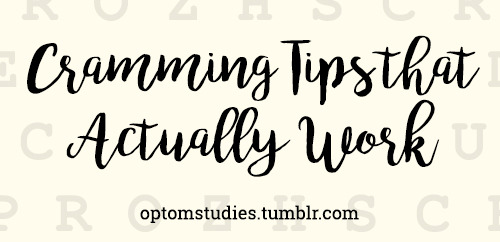
Hey, so usually I’m very early and prepared for exams but this time for my Christmas exams, I’ve left EVERYTHING until 5 days before the exams! There’s too much to memorise in such a short amount of time! And I have a busy schedule so I can’t do revision 24/7! Any tips?
Pssst! The best tip for cramming is actually to not cram!! 🙃 But if you have to, here are some tips that actually work! 💲💲
Throw out all distractions, and palm off as many commitments as possible to others.
You’re a student at the end of the day. That’s your job, so do it properly. Before you are a retail worker, a movie buddy, a chauffeur for your siblings, or a studyblr blog manager, you are a student.
You don’t have a lot of time left, so give your phone to your parents or someone you trust to keep it away from you. Add StayFocusd to Chrome and turn on the nuclear option so that you only use the internet for study purposes. Get your friends/siblings or parents to do chores for you and make it up to them after the exams.
Know what’s likely to be tested.
This is much more important than anything else. There are going to be important concepts that you learn that are not going to be tested. No point studying for something that won’t be asked about. Pro tip: think about the homework exercises that you got and what they tested.
Just as a general rule, the most basic things such as definitions (skim read these), as well as the most complex cases, will not comprise the majority of the test. For complex cases, you can’t just skim read them, but you should get an idea of the skills/processes that you need to solve them.
For example, when learning about different diseases, the point is to make you a practitioner which can deal with the most dangerous (life-threatening, sight-threatening no matter how rare), most common (>1% prevalence) and uncommon (0.1-1%) diseases, which will comprise the majority of the points. The rare conditions (<0.1%) will either be right near the end of the test or be bonus point questions. The other thing is that if even if they do ask about rare conditions, it’s going to be a distinguishing sign, or it is related to a more common condition. And the question they most likely ask is “what further tests would you do to aid diagnosis?” which relates to basic concepts of disease diagnosis.
Also, just keep in mind that there are university exams which literally ask you minutae in the multiple choice questions. For example disease exams have asked things like “What percentage of people with diabetes mellitus have diabetic retinopathy?” and have four really similar options for percentages. You just have to had studied that, and odds are you won’t be able to remember a hundred different stats prior to your exam if you’re cramming (just don’t cram, you literally can’t cram for uni exams).
Divide your time appropriately (not necessarily equally) between understanding the course content and doing practice exercises/ examination style questions.
If you just launch into doing practice questions without having some sort of knowledge, you’ll get stuck on a lot of questions, get the questions wrong, and need to refer back to your textbooks and do a lot of searching and flipping through pages, which wastes your time.
So start off by going through the concepts first so that you know enough not to constantly look back. You should try to allocate as much time as possible actually answering questions though, because there’s no better way to prepare for an exam than to do exam-style questions.
Step-by-step: Count the number of chapters/lectures you need to cover, and divide it equally amongst about 40% of the time that you have left, so that you know how long to spend revising each lecture.
Focus on one exam at a time, and study the hardest concepts which require a lot of reasoning and understanding in the morning.
Studying in the morning allows you to be at your freshest and most switched on. If you’re strapped for time, focus on being able to explain things. Explain it to your parents, siblings, or gudetama plushie. Explaining is an exercise in summarising which tests your ability to understand causative elements and how they relate to different consequences.
Ask questions to yourself whilst studying.
This tests your knowledge, and is a good way for you to check what you know and what you don’t know. When you’re cramming, you likely don’t have someone to help you at such short notice, so you need to be that person for yourself. Plus, it primes you to think like an examiner/exam paper - you’ll start realising what’s likely to be tested, which helps you narrow down what to study, and it helps you for the next part: practice questions.
For example: geometry - to give a simple example, yes, you need to know what an angle bisector is, but are they likely in the exam to ask you to “Write the definition of an angle bisector.”? No. They’re going to get you to actually get your tools and bisect one. 90% of the time, you don’t need to know a definition in maths - it’s only the foundation knowledge so that you can answer actual questions.
For example: medical/health science. Yes, you need to know differentials for diseases, but are they going to ask you to “List the differentials for ___”? No, that’s too simple, they’re obviously going to get you to eliminate a differential by considering the similarities and differences in signs and symptoms. So it’s much better to spend your time learning which conditions have similarities and what the distinguishing signs are e.g. Fuch’s Uveitis has stellate KP that is scattered all around the corneal endothelium - all other forms of uveitis pretty much have the KP scattered in Arlt’s triangle because of the convection currents in the anterior chamber.
Chunk information together.
This is a much more effective way of summarising all the information you need to study. Think of your memory as a mind map or a expandable list or like a set of folders in My Documents. You should try and sort things into topics and sub-topics that you can simply expand by just thinking of the title of that sub-topic.
Step-by-Step: Cover up the information you’ve written under the sub-topics, and then try to recall it all just by looking at the title (acts as a trigger word).
Topic/Chapter/Lecture 1
“Sub-Topic 1″ #Try and recall all the info below by reading this#
#cover up this information#
#cover up this information#
#cover up this information#
“Sub-Topic 2″
“Sub-Topic 3″
Not only does this 1) actually test your knowledge through a smaller form of the blank paper method (previously written about here) but it also 2) allows you to chunk and remember massive amounts of information just by seeing the trigger word (the title of the topic).
It helps to make a mental note of how many points were written for each section.
Tie everything together with a mnemonic.
Of course, the issue now is that if you don’t have the trigger word then you won’t remember that chunk of information - so you need to counter that by using a mnemonic to remember the top level of topics and link everything together in your mind.
Using this method is what I’ve always done to remember large chunks of information. That way, when key words turn up in the question, you will be able to remember all the information under that category and hence answer the question flawlessly.
Practice by doing one exercise for each type of question.
Particularly useful for studying for maths/science. You just need to know how to solve one question in the set to know how to solve the rest. Pick the hardest question at the end of the question set because it will involve the most skills to complete.
Study in a different order. Study your concepts in reverse.
Make sure you change things up, because you don’t want your brain to only be able to answer a question if all the topics lead on to the next. The questions in the exam are going to be covering all your topics in all different orders. Jump from Chapter 3 to Chapter 5 to Chapter 2, and do the same for the sub-topics.
Secondly, study concepts in reverse because this is how exams test who really knows their stuff. For example: instead of learning that Disease A has Symptoms 1, 2, and 3, force your brain to think “What Disease has Symptoms 1, 2, and 3?” - because this is exactly the type of question that comes up in exams.
Drink water, take breaks, sleep.
Still needs to be done to maximise your productivity. Not taking breaks will make you less efficient and less effective. You also said that you have other commitments so try to get that stuff done in the short breaks between your study sessions so that you can be productive. Take a 5-10 minute break every hour and get out of your seat and stretch. Sleep is essential for our brains to consolidate information and retain information.
Best of luck!!
MY STUDY TIPS
My study tips directory (web only) for the full list (over 80+ original posts/guides!)
Keep reading
4K notes
·
View notes
Text
Self Care Tips: How to Have A Good Morning
Wake up at a reasonable hour, doesn’t have to be at 6am, but don’t get up at 12 (unless of course your schedule/routine involved that, e.g. You work a night shift)
Go to sleep at a reasonable time the night before and make sure to get 6-8 hours. You need the rest!
Open your blinds, let some light in
Make your bed and you’ve already accomplished something
Have a shower if you can
If not at least wash your face
And make sure to brush your teeth
A skincare routine (cleansing, toning, moisturizing, etc) a bit of effort but worth it- find what works for you
If you’re into that, do your makeup and hair nicely
Say good morning to the people around you
Drink a glass of water, cold to wake you up or warm for cold mornings and help with digestion. Add some lemon or other fruit for flavour of you want.
Make yourself a nice breakfast: most important meal of the day! Doesn’t have to be big just something.
Remember to take your medication/vitamins/etc., if you take any.
Make yourself a cup of your beverage of choice; tea, coffee, hot chocolate, whatever you’d like
Sit down and eat your breakfast, be mindful
Write down or think of at least 3 things you’re grateful of
Similarly, plan your day
Congratulations! You’re ready to face a new day!
Get started with work as soon as you can and be productive!
7K notes
·
View notes
Text
Friendly Finals Reminder
Sleep, eat and breathe.
Prioritize, break down tasks, and go a step at a time.
You can do this!
Grades do not define you!
Try your best, that is all that matters!
You can do this!
Ask teachers and others for help if you need it.
It’s okay to not know everything!
You can do this!
4K notes
·
View notes
Text
Reblog or your mom will die in 928 seconds.
I love my mom.

I am risking nothing

I AM SORRY FOLLOWERS, I LOVE MY MOMMY
Will not risk.

sorry followers :(
5M notes
·
View notes
Photo
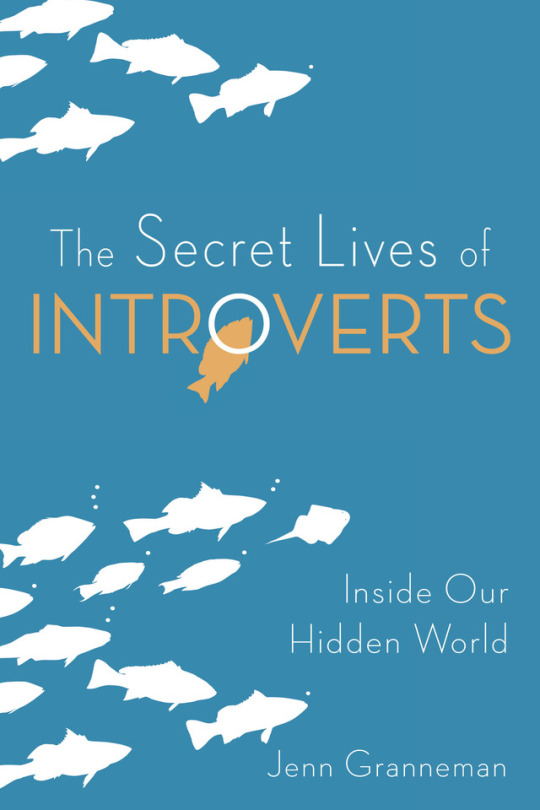

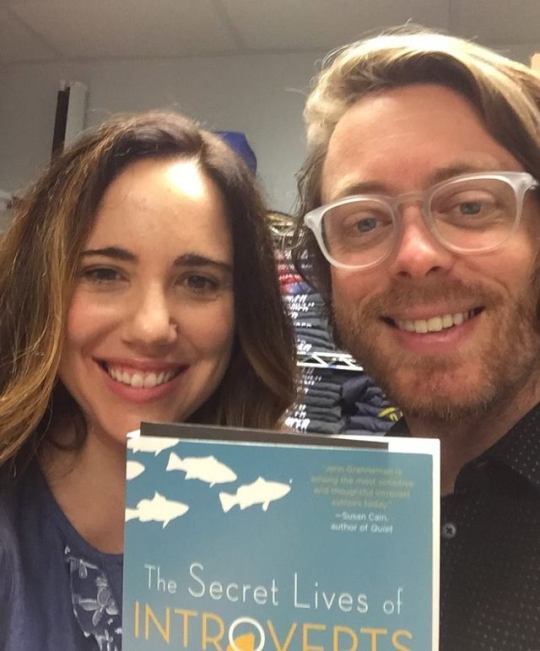
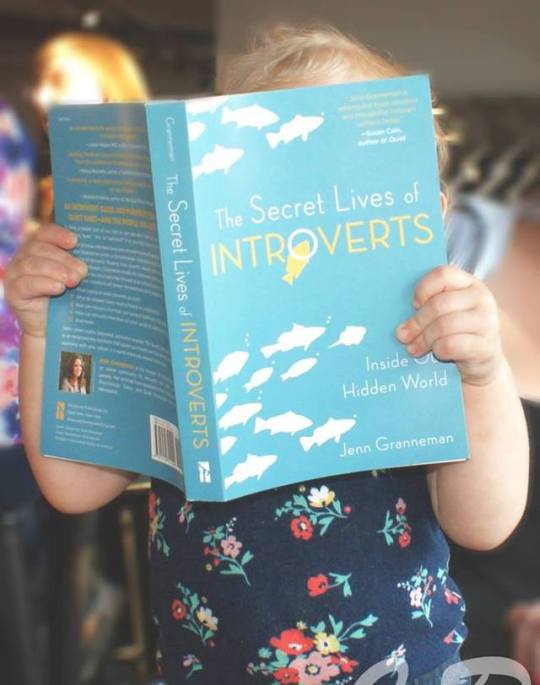
Looking for a holiday gift for an introvert? Check out The Secret Lives of Introverts, by Introvert, Dear founder Jenn Granneman. This bestselling book reveals the introvert’s hidden inner world. Both a guide and a compassionate vindication, it shows introverts they have no reason to feel ashamed of their quiet ways. It teaches them how to work with their introversion rather than fight against it.
Now eligible for FREE one-day shipping with Amazon Prime!
Order here
70 notes
·
View notes
Text
With a vote 3-2, Net Neutrality was repealed
“What I am pleased to be able to say is the fight to save net neutrality does not end today. This agency does not have, the final word. Thank goodness.” - FCC Commissioner Mignon Clyburn

You heard the woman. The fight is NOT over. It does NOT end today. This agency does NOT have the final word. This initial repeal means we have to fight HARDER and without mercy. This repeal will go to Congress and they will have the final word to repeal Net Neutrality or to keep it.
THAT MEANS YOU HAVE TO CONTACT YOUR REPRESENTATIVES TODAY AND EVERYDAY UNTIL THE DAY THE COURTS DECIDE. Mignon Clyburn and Jessica Rosenworcel confirmed it at the hearing, our protesting does work! Clogging their phone lines, emails, and fax machines does get their attention! Use the sites you have been using like BattleForTheNet, SaveTheInternet, and continue to text RESIST to ResistBot At 50409, free of charge! (Despite the rumors of not doing this, THIS DOES STILL WORK) Send your personalized emails, whether long or short! Call your representative’s offices and read scripts found on the internet if you don’t know what to say! Non-Americans who want to help! CONTINUE TO SPREAD THE WORD OF WHAT TO DO! WORD OF MOUTH WORKS!
THE FIGHT IS NOT OVER. WE CAN STILL WIN THE WAR. THIS IS ALL OR NOTHING RIGHT NOW. ROLL UP YOUR SLEEVES AND GET IN THERE!

55K notes
·
View notes
Text
Why study for exams when you can deduce the answers based on context clues from other questions and then use those answers to provide you with even more context clues for even more questions in an hour-long stress-fueled Professor Layton-esque logic puzzle extravaganza of future-hinging doom.
119K notes
·
View notes
Conversation
The Houses as Spouses
Gryffindor: plans couple activities without telling you, comes home with pets out of the blue, makes friends for the both of you, introduces you to them with huge grins on their faces, can't keep anniversary presents secret, will refer to your pets as your children
Hufflepuff: spontaneous duvet days, will fight anyone who is rude about you, will support everything you do, bakes lots, likes to remind you they love you at random times, surprises you with cute things all the time, can be trusted to keep any of your secrets
Slytherin: flirts even though you're married, knows exactly when you have something to say, protective of you in new situations, likes to tell random strangers you're married just so they are aware, suggests you get matching tattoos on a regular basis
Ravenclaw: always adding new decorations to your house, debates about everything and anything, being woken up at 3am with random questions about the universe, remembers all your favourite things 17 years after you told them, journeys are either planned 4 months in advance or not at all
1K notes
·
View notes

